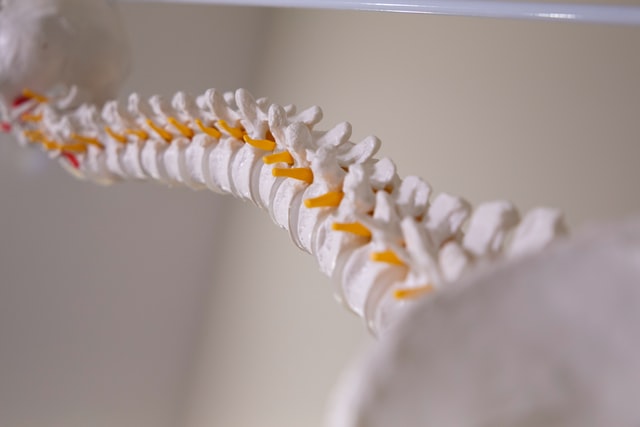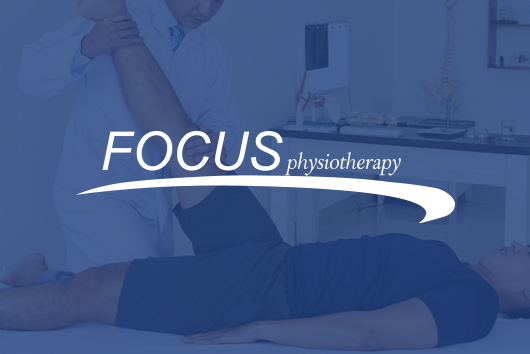The spine is capable of adapting to a lot of stress. However, over time, our everyday actions take a toll on our joints, making them vulnerable to injury with the potential to lead to pain and discomfort. Herniated discs, also referred to as slipped discs, are injuries to the lower back.
However, in most cases, patients can manage this painful condition successfully with professional herniated disc treatment and physiotherapy care.
At Focus Physiotherapy, we proudly provide expert herniated disc treatment to patients across North York. We tailor our treatments to address and heal the source of your problem and relieve chronic pain for herniated disc, chronic lower back pain, sciatica and a range of disc-related conditions and diseases.

What is a Herniated Disc?
Intervertebral discs are found in-between the vertebral bones of your spine. They assist in spinal flexibility, shock absorption and offer a pathway for nutrients into the bones. Disc Herniation happens when one of your spinal discs’ central material is squeezed out of your lumbar vertebrae. As there is limited space in the spinal canal, the disc presses on spinal nerves, often producing pain.
There are many contributing causes of herniated disks, such as:
- Wear and tear that occurs with aging
- Excessive body weight
- Injury to the spine
- Sudden stress
- Poor posture
- Bad habits in exercise
Our Herniated Disc Treatment Centre is Conveniently Located at 4789 Yonge St, unit #506. We Welcome You To Stop By With Questions or Give Us A Call At 416-961-2001 or Email Us Today.
Types and Symptoms of Disc Herniation
Herniated discs can occur in any part of the spine. Herniated discs are more common in the lower back, also known as the lumbar spine, but may also occur in the neck or cervical spine. Symptoms vary greatly, depending on the position of the herniated disc and the size of the herniation.
A lumbar herniated disc is a common cause of low back, buttock and leg pain. Sciatica is a term used to describe pain that extends into the leg. Symptoms may include numbness, tingling, muscle spasms, cramping, leg weakness, or leg function loss. Activities such s bending, coughing or sneezing may intensify the pain.
A thoracic herniated disc often causes mid-back and rib or abdomen pain. Symptoms may include pain in the mid-back around the disc herniation level and around the ribcage, numbness, stiffness, and weakness in the legs. However, an examination is essential to rule out all other causes of symptoms.
A cervical herniated disc often causes neck, arm and shoulder pain. Associated symptoms that may occur include numbness, tingling or burning in the arm on the affected side. Bending, coughing or sneezing may intensify the pain. Additionally, turning the head towards the affected side might aggravate the patient’s symptoms.

Professional Herniated Disc Treatment at Focus Physiotherapy in North York
Our Registered Physiotherapists accurately identify the best treatment for your recovery and create a program that reduces stress on the spine while relieving pain and discomfort during activities. The treatment solutions for Disc Herniation, which may include specialized physiotherapy equipment, will take into account your unique lifestyle demands.
Herniated Disc Treatment Options Include:
Physical therapists show you position and exercises designed to minimize the pain of a herniated disk.
We are the first choice of OHIP-covered Physiotherapy services within the communities we serve. Our state-of-the-art equipment is now available through OHIP for the patients who meet the government selection criteria.
In-Home Physiotherapy
Home Physiotherapy and Massage Therapy services are excellent for patients suffering from a severe injury or mobility issues relating to herniated discs. Physiotherapy at home is very convenient for people whose schedule makes finding the time extremely difficult.
Massage therapy can help maintain healthy muscle tissue in the surrounding area, take the spinal column’s strain, and increase circulation, muscle flexibility, and range of motion.
Laser Therapy and Electrical Modalities
Laser therapy is a medical treatment that uses low-level lasers or light-emitting diodes to alter cellular function. Laser has primarily been shown helpful in the short-term treatment of acute pain.
Acupuncture Treatment
Acupuncture targets specific points along the “meridians” of your body that correspond to nerve pathways affected by a herniated disc. This herniated disc treatment method may help stimulate healing by increasing blood flow.
Spinal Decompression is safe and effective without the normal risks associated with invasive procedures such as injections, anesthesia or surgery. The clinical results of this herniated disc treatment in North York has been effective in over 85% of patients treated. The common problems behind the majority of back conditions are damaged discs and poor spinal muscle control. Our herniated disc treatment program addresses both of these core problems.
Recovering from an acute injury may take 6-8 weeks, with the right balance of rest and activity and rehabilitation exercises. You will most likely see quicker results with professionally guided disc herniation treatment.
Our Herniated Disc Treatment Centre in North York
Are you looking for herniated disc treatment to help you find relief? Visit Focus Physiotherapy today, located at 4789 Yonge St, unit #50. Our office features a dedicated exercise studio, state-of-the-art medical equipment, and the most helpful team in town.

About Focus Physiotherapy
Our Focus Physiotherapy Practices are owned and operated by Registered Physiotherapists. We’ve built our practice on our treatment quality, which reflects the highest standards of our profession. Every day, we come to work to provide diligent, practical and effective physiotherapy services that are thoughtful and thorough.
Specializing in trauma recovery and using only the best technology, our high-quality professional care is focused on you. Registered Physiotherapists at Focus Physiotherapy are highly trained, continuous learners who assess, diagnose and treat patients as a result of injury, severe trauma, disease, neurological conditions and age-related degenerative conditions.
The needs of our patients are our focus. Our quality of care reflects best practices and uses the latest equipment and physiotherapy techniques every time.

